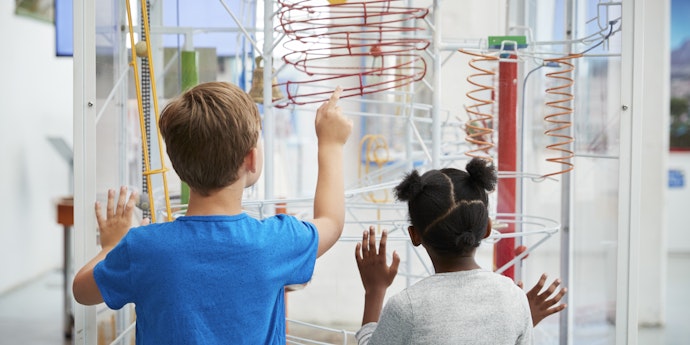Keep your students engaged in and out of the classroom with fun-filled science field trips in the Philadelphia area. These interactive field trips explore topics such as gardening, macro-invertebrates, insects, bones and the heart.
Choose from these seven exciting science field trips to expand your science lessons in and outside of the classroom.
Pennsylvania Hospital Physic Garden
Garden Program
Help your students 'Learn to Grow' when opting for a field trip to the Pennsylvania Hospital Physic Garden. The program, through educational activities and tours, shows students about the history of medicine and offers lessons on how to preserve the environment. The Physic Garden features more than 100 plants your students can learn about while touring the garden. Develop interactive lessons about plant life with a short tour through the garden and the hospital. Students also get the chance to use a pestle and mortar to create a medicinal compound.
Awbury Arboretum
Pond Explorations
Treat your students to a day of learning about animals that live in the pond at the Awbury Arboretum. Students receive hands-on opportunities to examine macro-invertebrates, birds and amphibians while also learning about pollution, non-native and native plants and animals and watersheds. Ideal for children in preschool through middle school, this interactive program is $6 per person and requires a minimum of 10 students.
The Franklin Institute
The Giant Heart
Field trips at The Franklin Institute give your students a chance to explore the "heart" of this interactive science museum. The Giant Heart teaches your class how to keep their heart in prime condition through a balanced lifestyle, a healthy diet and exercise. Ideal for students in preschool through middle school, field trips at the Franklin Institute include dining options and access to the permanent and temporary displays, such as the Train Factory, the Changing Earth display and the Space Command.
Philadelphia Insectarium and Butterfly Pavilion
Interactive School Tours
Give your students a chance to learn about collections of rare and exotic insects with a science field trip to the Philadelphia Insectarium and Butterfly Pavilion. School tours, appropriate for first through fifth graders include an hour touring the museum, 30 minutes in the butterfly pavilion and 30 minutes in the classroom with a tailored science lesson. Each field trip requires a minimum of 15 students with one chaperone included per group.
The Academy of Natural Sciences
Amazing Adaptions
Expose your students to the wonders of dinosaurs, butterflies and other live animals when booking a field trip to the Academy of Natural Sciences. Choose from discovery lessons and self-guided visits to hands-on programming. Appropriate for elementary and middle school students, this field trip includes exhibits with live animals, exploration of fossils, lessons on evolution and more. Each 35-minute lesson is designed to meet state and national standards.
Wagner Free Institute of Science
Ocean Life
A field trip to the Wagner Free Institute of Science offers a hands-on lesson that explores the mysterious creatures inhabiting the Earth's vast oceans. Your students can learn about the world of underwater life, as well as rocks and formations, dinosaurs and fossils and food chains. Each 90-minute field trip requires a minimum of 20 students and is recommended for students second grade and above.
Mutter Museum
Bone Detectives
If your students are curious about how bones help to solve crimes, then the Bone Detectives field trip at the Mutter Museum is the perfect choice. During this interactive field trip, students discover what can be learned from examining skeletal remains in addition to learning about the role of forensic anthropology in many criminal investigations. This 45-minute field trip is appropriate for grades five through twelve and satisfies many Pennsylvania academic standards.
Now that you've learned about our favorite science field trips in the Philadelphia area, share your favorites in the comments below. We want to know how you enhance your science curriculum when venturing outside of the classroom.
